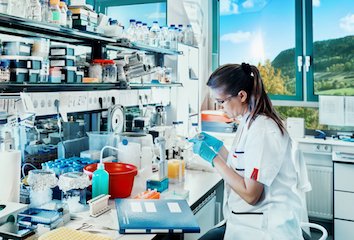
image credit- shutterstock
A team of scientists at the University of Cambridge (UK) has used human embryonic stem cells to grow clusters of heart cells in the lab and shown that these cells mimic the behaviour of the cells in the body, beating as if to pump blood. Crucially, these model heart cells also contained the key components necessary for SARS-CoV-2 infection – in particular, the ACE2 receptor.
Working in special biosafety laboratories and using a safer, modified synthetic (‘pseudotyped’) virus decorated with the SARS-CoV-2 spike protein, the team mimicked how the virus infects the heart cells. They then used this model to screen for potential drugs to block infection.
Dr Sanjay Sinha from the Wellcome-MRC Cambridge Stem Cell Institute said: “Using stem cells, we’ve managed to create a model which, in many ways, behaves just like a heart does, beating in rhythm. This has allowed us to look at how the coronavirus infects cells and, importantly, helps us screen possible drugs that might prevent damage to the heart.”
The team showed that some drugs that targeted the proteins involved in SARS-CoV-2 viral entry significantly reduced levels of infection. These included an ACE2 antibody that has been shown previously to neutralise pseudotyped SARS-CoV-2 virus, and DX600, an experimental drug.
Although the team needs to do further research on this drug, it could provide them with a new treatment to help reduce harm to the heart in patients recently infected with the virus.




